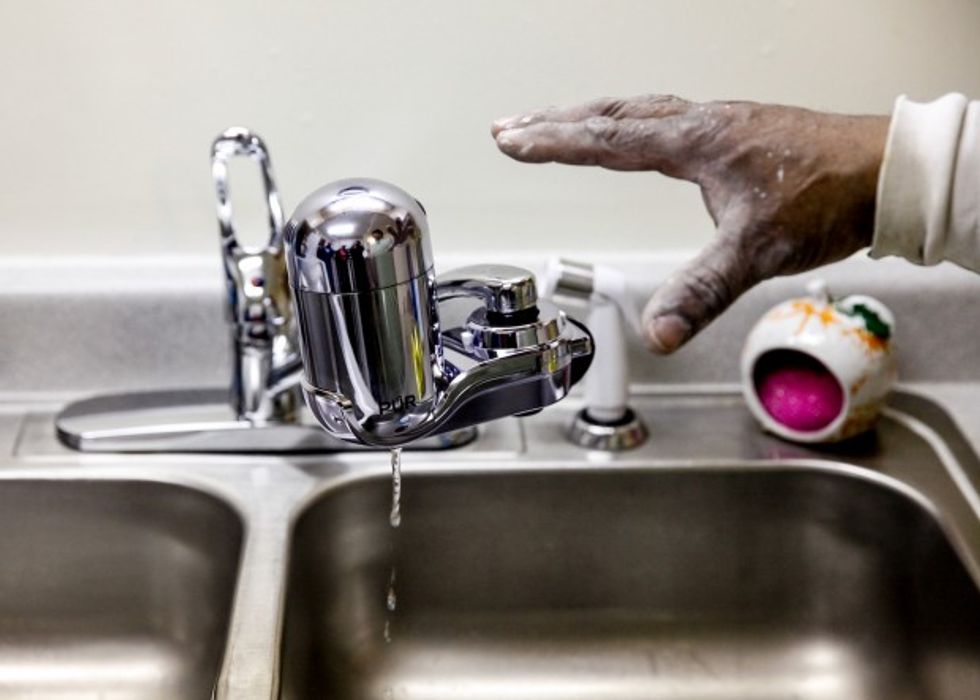
The early morning sun begins to rise benhind the US Capitol building on January 20, 2015 in Washington, DC. (Photo by Mark Wilson/Getty Images)

WASHINGTON (AP) -- Congressional leaders have broken a stalemate over money to address the Flint, Michigan, water crisis, clearing the way for a spending bill needed to keep the government running until December. The spending measure also would provide long-delayed money to fight the Zika virus and help Louisiana rebuild from last month's disastrous floods.
House Speaker Paul Ryan said the breakthrough on Flint "will help unlock" the short-term government spending bill, which has been stalled in the Senate.
"We should be able to move this through, I believe," Ryan, R-Wis., said at the Economic Club of Washington.

The deal would avert a potential federal shutdown and comes just three days before the midnight deadline to keep the government open.
Senate Majority Leader Mitch McConnell, R-Ky., said that he is "hopeful that we will soon reach an agreement with our Democratic colleagues to move forward" on the stopgap spending bill measure and Zika aid.
Top Senate Democrat Harry Reid of Nevada said the agreement was "a step in the right direction," though he griped that the funding won't flow right away.
On Tuesday, Senate Democrats and a dozen of the chamber's most conservative Republicans joined to block the temporary spending bill. Democrats said help for Flint and its lead-contaminated water had to advance immediately and they were not willing to accept a promise that it will come after the election.
The Flint measure, set for a vote Wednesday as an amendment to a separate water projects bill, would authorize $170 million to help Flint and other cities with water emergencies. The actual funding would be provided after the election in the final version of the water measure.

Charges of racism and campaign-season antagonism between Republicans and Democrats had slowed efforts to pass the spending measure. Democratic Rep. Dan Kildee, Flint's congressman, had accused Republicans of ignoring the plight of predominantly black Flint because Republicans would not permit a vote on a Senate aid package to deliver the money now.
But Wednesday morning Kildee issued a statement that called Wednesday's vote on the non-binding $170 million promise "a step forward to ensuring that Flint families get the resources they need to recover from this crisis."
The House was expected to vote on the water legislation containing the Flint provision on Wednesday. The amendment represents a bipartisan agreement authorizing the funding, but the actual money would await the final House-Senate version of the bill after the November election.
The spending bill also contains $500 million to help Louisiana and other states rebuild from recent floods and full-year funding for the Department of Veterans Affairs.
Democrats argued it's unfair that the water crisis in Flint has gone on for more than a year with no assistance, while Louisiana and other states are getting $500 million for floods that occurred just last month. Democrats have played a strong hand in the negotiations and had leverage because Republicans controlling the House and Senate were eager to avoid a politically harmful shutdown at midnight Friday.
The stopgap spending bill would keep the government running through Dec. 9 and provide $1.1 billion in long-delayed funding to fight the spread of the Zika virus and develop a vaccine and improved tests to detect it. Zika can cause can cause grave birth defects.
—